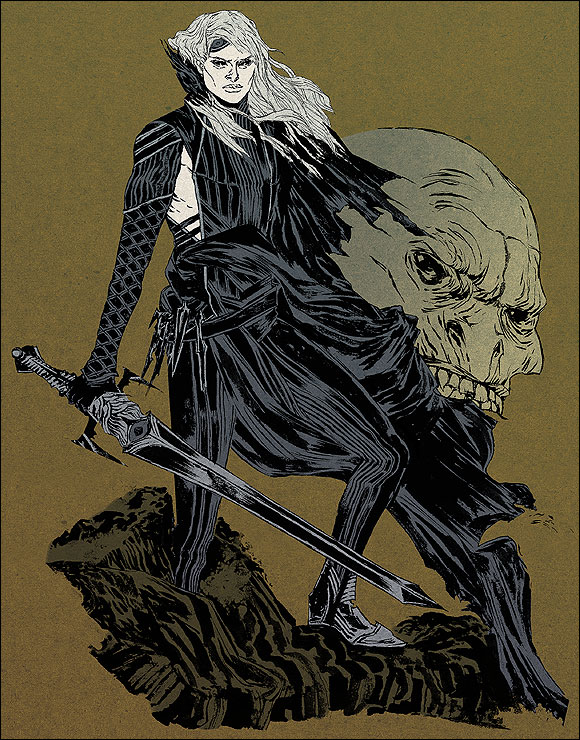. . . will the new Essentials products get you to try (or retry) 4e?
Now, why in the hell would a stripped-down, intentionally crippled version of a game that I'd already tried and found wanting appeal to me? What sort of appeal is there in getting the first 1/10th of a miniatures combat game? Clearly Wizards has learned from Games Workshop in a very serious way; Games Workshop requires that you buy the base rules and each army's individual rulebook, and then individual miniatures (roughly $40 per batallion or hero). And so Wizards creates book after book after book, each with sillier races and classes and ideas packed within.
But I digress. My answer: NO!
What about the Essentials book is supposed to appeal to me, exactly?
The game's an overly-combat focused, wargame-lite created by people who apparently not only misunderstand roleplaying (it's not a Charisma check, people) but aren't apparently sure what a DM is for. DMs aren't there to read "adventure paths", people. They're not there to read the module for you or to act as the rules jockey. And the party doesn't exist as a gigantic collection of skill checks and statistics, or as Class Archetypes or whatever. A party isn't composed of 2 Controllers and 1 Defender or whatever, it's Grimguts the Orc Slayer and Yomlin the Witcher and whatnot.
Watch my list of complaints about 4e and see how many are solved by the Essentials line:
1) Default inspiration is bland post-Tolkien anime-influenced fantasy. Nope, still does that.
2) Game revolves entirely around combat. Yeah, pretty sure they're not going to redesign all of 4e for this little box set.
3) An "Optimal Character Build" is heavily encouraged by the game. Again, not fixed.
4) Classes all play and feel exactly the same. And again.
5) Game has terrible art. And again.
6)Monsters are generic and bland. And again.
7)Game focuses is limited character options, rather than freeform play. And again.
8)Combat in game is a miniatures-light minigame requiring "battlemats" and exact positioning. If I wanted to play Warhammer, I'd bust out my Dwarf gunline and roll those tiny d6s. Or I'd play Descent: Journeys in the Dark
9)Feels overly "gamey". Everything feels paper-thin and artificial.
10)Hit point inflation has gone insane. Why, exactly, does everybody have 30 hit points at first level?
11)Combat takes too long. Combat takes at least half an hour, even for small combats. How that's acceptable, I have no idea.
12)Game feels bloodless and hollow. Since everybody has 30 health at 1st level and my sword deals 1d8, I have to hit the average mook, on average, way too many damn times.
I could go on, but you get the picture.
Now let's look at what 4e Essentials gets right, in the interest of fairness.
1)They release the game's rules as one book. While it's not the entire book, it's at least enough to get the core mechanics. You could treat the game as Holmes edition and limit advancement, or you could homebrew yourself the other 28(!) levels.
2)They gave the Wizard a unique class mechanic. It's not a unique one (hello again, Vancian magic!) but it's at least a start so that all of the class abilities aren't just rejiggered versions of each other. Like I said, it's a start.
3)They're trying to get new players. For all the irritation I have about 4e, it is spreading the hobby. Each person playing 4e is another person that we can try to help "get it", so to speak. I'm not saying my way of gaming is the absolute best way, but...
So, please, what exactly does Essentials have that will bring me back to the fold? I'm absolutely dying to know!




